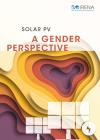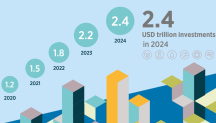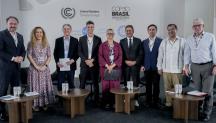

Solar PV: A Gender Perspective
Newsletter
Gender equality is not only an intrinsic human right and a core development objective, but also an instrument for development. It increases productivity and improves the welfare of families and children while having solid and positive impacts on GDP per capita. Economic empowerment is a particularly effective means for women to gain more control over their own lives. However, women are still frequently ignored, undervalued or unpaid, which prevents them from becoming dynamic economic participants. Without their full engagement, inclusive growth is unattainable.
Climate change and gender equality are inextricably linked. Strategies and programmes addressing the effects of climate change must include the participation, experiences and voices of women – not only because they are disproportionately impacted by climate change but also because they have valuable points of view, experience and knowledge to contribute to building community and national resilience.
The solar photovoltaic (PV) industry is the largest employer within the renewable energy sector, accounting for some 4.3 million jobs. If the solar business does not include a gender lens to incorporate more women, the industry is at risk of excluding a talent pool that is integral to its growth. This also undermines opportunities to improve the working environment for all employees, as having more women in the workplace is proven to improve organisational culture, resulting in better employee engagement and retention.
This report, the third in IRENA’s gender perspective series, examines the participation of women in the solar PV sector. The analysis outlines the share of women in the solar PV workforce, examines the barriers that women face in the sector - including women living and working in the off-grid context - and discusses the path to a more diverse solar PV workforce.
See the visual story: A Gender Perspective on Solar Employment.




